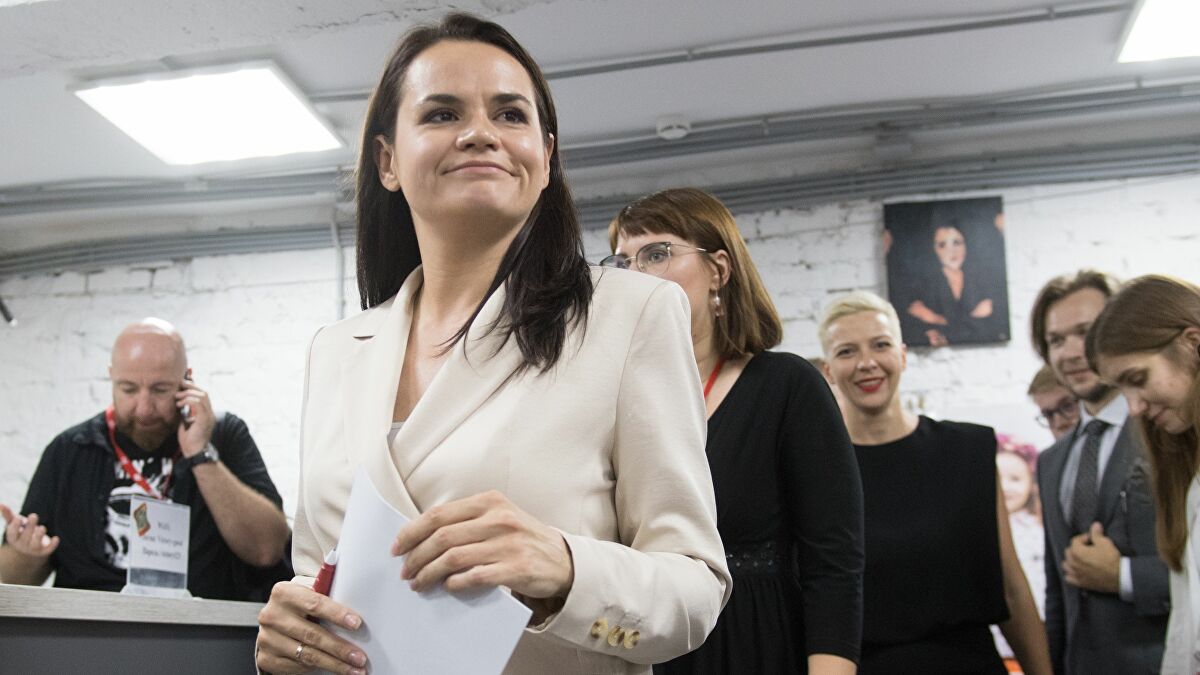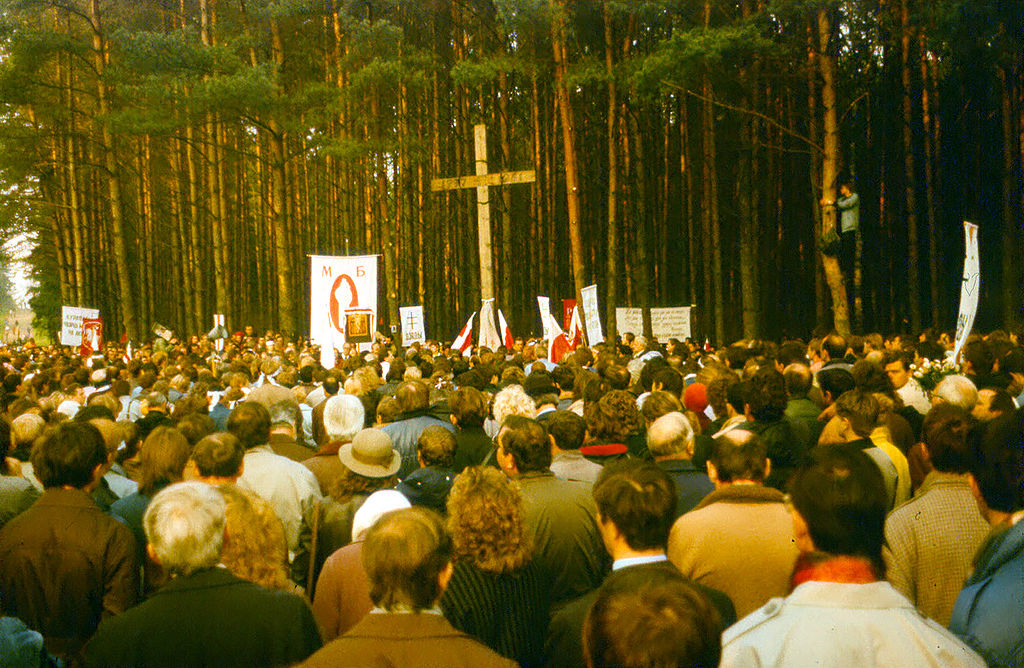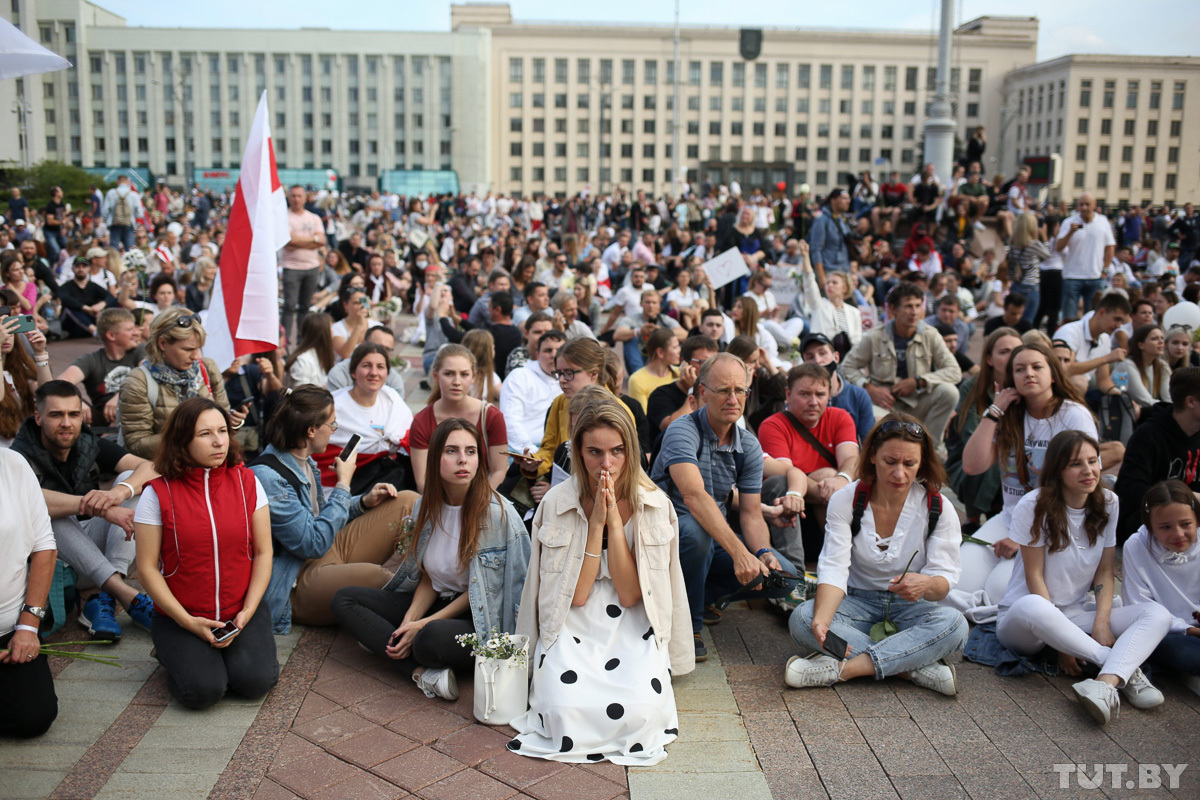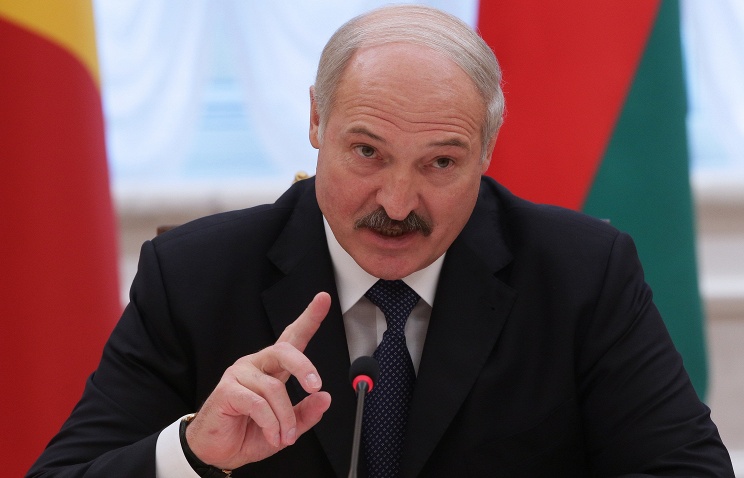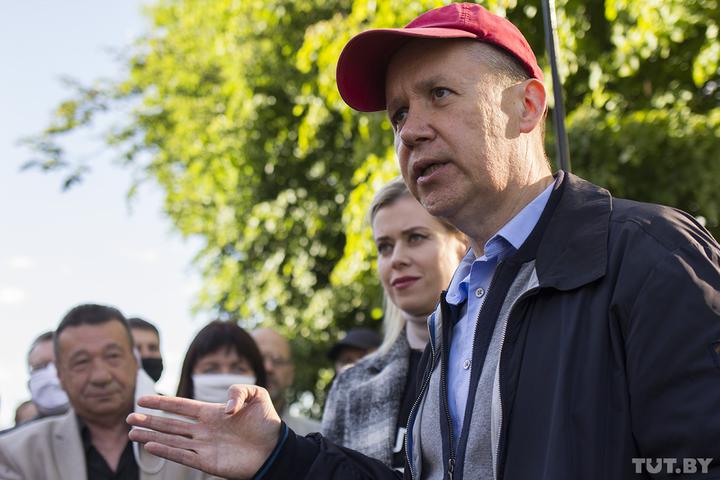On July 20, Belarus’s President Alyaksandr Lukashenka conducted a foreign policy revision meeting. That same day, the Roundtable of Democratic Forces, a group headed by Yury Voskresensky, published a draft for a new constitution; and Svetlana Tikhanovskaya, widely seen in the West as the leader of a “democratic Belarus,” paid a visit to Washington, where she met with Secretary of State Antony Blinken and several United States Senators. In addition, Minsk officially eliminated 48 formerly registered non-governmental organizations (NGO), including Mova Nanovo (Belarusian Language for Newbies), IPM Business School, and others (Thinktanks.by, July 24).
Connecting these events and/or finding their proper place in the overall political situation depends on one’s perspective. One can take a cue from the mortal-autocracy-democracy-combat perspective embraced, among others, by David Kramer, a former State Department official, who, in an interview with the Belarusian Service of Radio Liberty, underscores what he believes is the US’s responsibility to spread democracy abroad (Svaboda.org, July 21). A less moralistic and more nuanced perspective, on the other hand, was presented to the same media outlet by Siarhei Bogdan, a Belarusian scholar and a lecturer on global history at the Freie Universität, in Berlin, Germany. Bogdan’s interview is tellingly titled “Events of 2020 Zeroed in on the Regime but Dealt a Blow to Belarus” (Svaboda.org, July 22).
In Bogdan’s opinion, the West’s acute personalization of the Belarusian regime contributed to a simplistic and erroneous explanation of all problems.
“In last year’s events, from their very beginning in the spring,” Bogdan asserted, “many honest and sincere people showed a willingness to be deceived by […] dubious proposals and individuals often without name recognition. The very idea of achieving change by supporting non-transparent political projects in last year’s [August 9, 2020, presidential] election […] was misleading or even absurd.”
Bogdan’s further point is that the situation worsened when one dubious electoral outcome—i.e., 80 percent of the vote officially announced for the incumbent—was juxtaposed by an equally unbelievable one whereby a person without established or articulate political views was declared the winner by her supporters simply because she ran against the incumbent.
The protest movement’s leaders, like the former director of the high-tech park in Minsk or a former ambassador who spent 17 years on regime assignments abroad, are no paragons of virtue. And yet they did not evince any willingness for compromise even in the face of unprecedented regress in Belarus’s sovereignty vis-à-vis its eastern neighbor, manifested in agreements making it easier for Russian troops to enter Belarus. Their mantra, to the effect, that there was no geopolitics involved in the protest, parroted arguments espoused by the Armenian opposition during the 2018 Velvet Revolution and made no sense at all. Indeed, in the Armenian case, being almost surrounded by Turkic entities could not allow one to disregard geopolitics; likewise in the Belarusian case, the availability of a next-door neighbor with global ambitions could not allow Belarusians to pretend that geopolitics simply do not matter (Svaboda.org, July 22).
Bogdan’s perspective, thus, allows one to connect the dots on the event-heavy day of July 20, detailed above. Namely, both sides of the conflict live in their own imagined worlds, detached from one another, and they express themselves accordingly.
“The Ministry of Foreign Affairs must clearly understand that the modern world is not limited to the countries of the European Union. It is much wider,” declared Lukashenka at his recent foreign policy meeting. Lukashenka blamed the West for the ongoing illegal migration to Europe, including that passing though the Belarusian-Lithuanian border. He singled out some “treasonous” diplomats who resigned their posts in protest of his regime’s brutal repressions last August. In response, one of them, Pavel Matsukevich, mentioned in his interview to the Russian daily Kommersant that “to sincerely support the Belarusian government and its methods after the moment of truth in August 2020, you would need to be either blind or deaf. However, diplomats regularly go through medical checks, especially before going abroad, and so they cannot fall in love so blindly” (Kommersant, July 20).
This remark speaks volumes against righteous either-or stances vis-à-vis the Belarusian political crisis because Matsukevich’s own standpoint on sanctions is worlds apart from those of the exiled opposition leaders who ask Western powers to impose new sanctions on Belarus almost daily (see EDM, July 7).
At the same meeting, Lukashenka ripped into his foreign minister, Vladimir Makei, because the latter’s erstwhile initiatives to develop ties with the West allegedly backfired (Regnum, July 21). However, harsh criticism of Makei is not included in Lukashenka’s speech as posted on the official presidential website (President.gov, July 20). That may suggest Makei’s personal loyalty is not being questioned at the top.
The project of the new constitution contains changes such as limiting the president to no more than two terms, extending the tenure of the parliament from four to five years, and appointing the All-Belarusian People’s Assembly as the supreme organ of people’s power (Sputnik.by, July 16). Some reputable political activists, like Aleg Gulak, the chairperson of Belarus’s Helsinki Commission, doubt that discussing this project makes any sense as it is likely a ruse, published to distract attention from the lack of willingness on the part of the authorities to actually implement any political change at all (Facebook.com, July 19).
Finally, on Svetlana Tikhanovskaya’s visit to the United States, the spokesperson for the Belarusian foreign ministry had this to say: “We hardly need to comment on the two-week tourist trip covered by American taxpayers… We saw how the press secretary of the State Department referred to support for some ephemeral ‘democratic aspirations of the Belarusian people.’ Our people are already experiencing this ‘support’ in the form of sanctions and restrictions. And the apotheosis of concern for the aspirations of our people is the ban on the purchase of air tickets from Belarus to the United States” (BelTA, July 21).
But whereas the reaction of the authorities was indeed predictable, it is noteworthy that the opposition-minded website Nashe Mneniye, whose editor-in-chief, Valeria Kostyugova, is under arrest, published a piece by the experienced analyst Vadim Mozheiko under the title “Why Svetlana Tikhanovskaya Is No leader of the Belarusian Opposition” (Nashe Mneniye, July 20).
The advocates of a black-and-white worldview and simple solutions should pause and take all of these aforementioned nuances into consideration.
Further reading:
- No, Belarusian dissident Protasevich is not a neo-Nazi. But the Kremlin sure wants you to think so
- Tsikhanouskaya says Belarusian opposition has “lost the streets” for now but won’t end the revolution
- “A blatant North Korea in the center of Europe.” Belarusian refugees explain why it’s so difficult to beat the dictatorship
- Why don’t Belarus protesters shun Russia? (2020)
- Discover Belarus, “the country of nine million hostages”
- How Alyaksandr Lukashenka stole the Belarus presidential election




